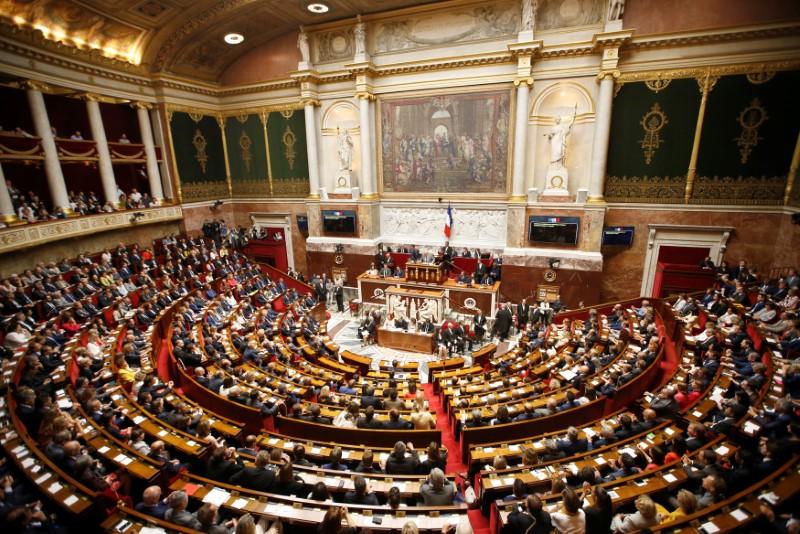Following the initiative launched by ADHRB alongside the French Member of Parliament (MP) Frédérique Dumas, 15 other MPs from the Assemblée Nationale (lower house), have endorsed a letter to the Ambassador of France to Bahrain. This letter alerts him to the deplorable conditions that detainees, and in particular prisoners of conscience, are facing in Bahraini prisons.
The full letter can be read here [Eng / official Fr]
MP Dumas and her colleagues have shed light on the reality of the “alternative sentences” that were applauded by the French Ambassador, Mr. Jérôme Cauchard at the end of March. The alternative sentencing program enables the Bahraini government to further stifle the political opposition. Indeed, it alleges the total liberation of detained prisoners of conscience. However, in reality these prisoners are put into arbitrary house arrest and are thus prevented from exercising their most fundamental rights.
This is, for example, the case of Nabeel Rajab. Nabeel Rajab is a prominent human rights defender and President of the Bahrain Center for Human Rights. He was part of the pro-democracy movement in 2011. For these reasons he has been targeted, harassed, and imprisoned several times. He was released from prison in 2020 but is now under the alternative sentencing program.
The 16 MPs also condemned the treatment of prisoners of conscience who continue to be imprisoned and tortured in detention centers. The most recent example of these horrendous conditions is the attack on Jau Prison on April 17, 2021, which was carried out by prison authorities. This brutal attack led to the enforced disappearance of 70 prisoners.
These Members of Parliament cite information provided by international experts, including ADHRB staff and its sources. They denounced the violations of many international human rights treaties such as the Convention Against Torture (CAT) and the United Nations Standard Minimum Rules for the Treatment of Prisoners (The Nelson Mandela Rules).
The letter points out the deterioration of the sanitary situation with regards to the COVID-19 pandemic. First, the Ministry of Interior (MoI) has been extremely vague about the actual number of prisoners infected and endangered by the virus. Second, the French MPs are alarmed by reports detailing unsanitary prison conditions and practices such as “a 24/7 prison cell confinement, with only one meal a day, and a lack of appropriate medical care.”
The Members of Parliament have called on the Ambassador to discuss these issues with the Bahraini authorities. They explicitly state:
“France must have a genuine dialogue with the Bahraini authorities, and this dialogue must be held locally. Also, Mr. Ambassador, I would like to know if you have been able to have a calm but firm dialogue with the local Bahraini authorities on the matter of the detention conditions of prisoners during this global pandemic. I would like to know whether you were able to obtain any information about the Jaw prison’s events of 17 April 2021 during your recent visit to the newly constructed Building 21, you obtained at the invitation of the Bahraini Ministry of Interior.”
About the letter, Husain Abdulla, Executive Director of Americans for Democracy & Human Rights in Bahrain (ADHRB), commented, “Given the recent situation in Bahraini carceral centers and the hardship especially faced by prisoners of conscience, this letter should ensure that human rights concerns are not spurned in any future exchange between French and Bahraini representatives. Human rights are the bedrock of the French democracy; Ambassadors should safeguard these values and publicly address them with abusive states.”





